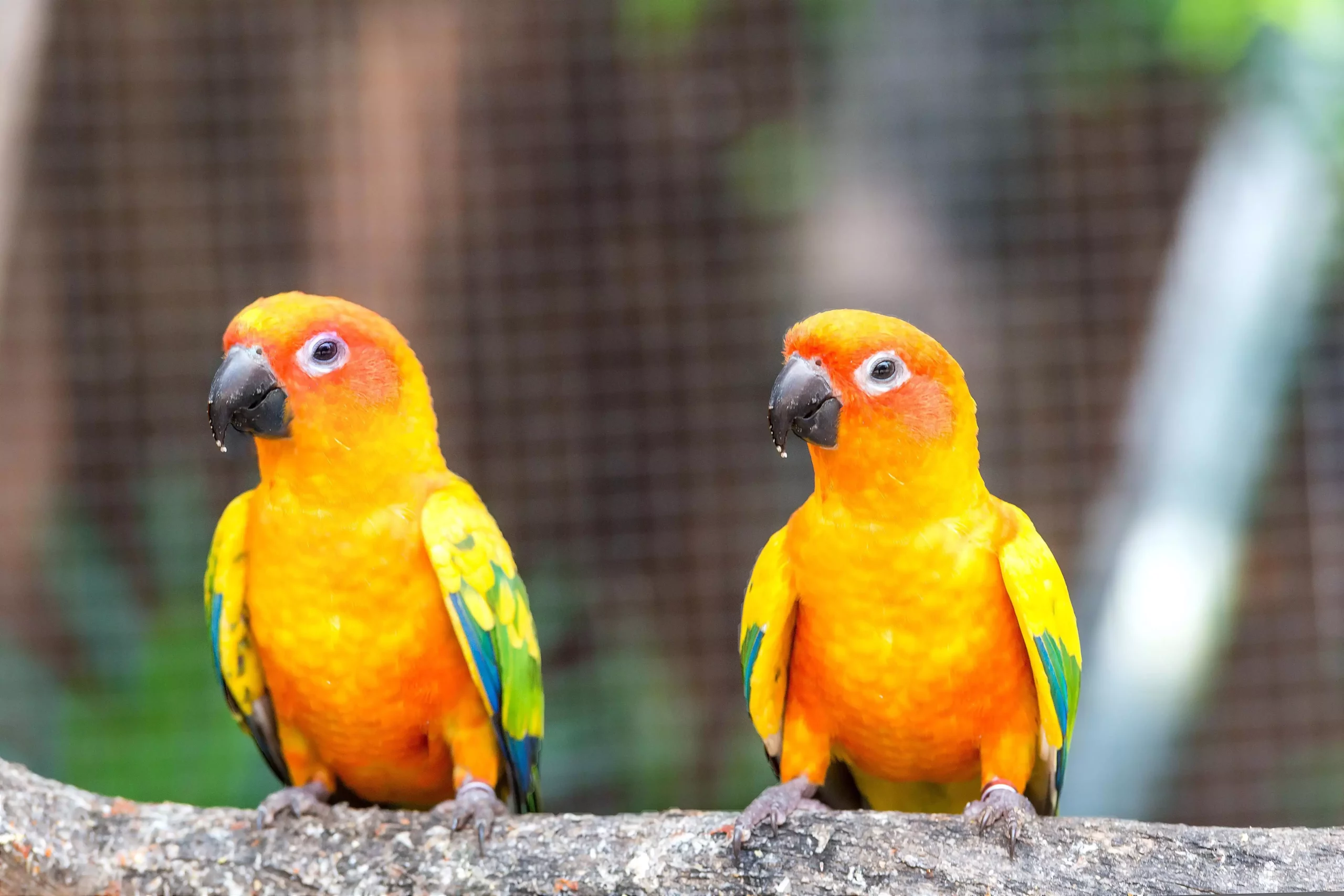Sun conures, with their strikingly vivid plumage and playful demeanor, have captivated bird enthusiasts around the world. These medium-sized parrots, scientifically known as *Aratinga solstitialis*, are not just visually stunning; they possess intelligent and engaging personalities that make them ideal companions for those who are ready to care for their unique needs. However, potential owners must be aware of the challenges that come with caring for a sun conure, including their loud calls and the substantial commitment they require.
The sun conure is easily recognized by its bright orange and yellow feathers, accented with traces of green and blue. Adult birds reach a size of about 12 inches and can live anywhere from 15 to 30 years in captivity, which is a significant consideration for prospective owners. Originating from the northeastern regions of South America—specifically Venezuela, northern Brazil, and Guyana—sun conures typically inhabit tropical climates. They thrive in fruiting trees and palm groves, which play a crucial role in their diet and behavior.
Behavior and Social Interaction
Known for their rambunctious and playful personalities, sun conures thrive on interaction with humans. They are highly social creatures and, as such, need regular engagement to prevent loneliness and boredom. While these birds can form strong bonds with their owners, it is essential to provide them with ample socialization with both humans and other birds for their well-being. If welcomed into a nurturing environment, sun conures can become very affectionate, often seeking physical closeness with their families.
However, it is crucial to note that their sociable nature comes with a loud price: sun conures are among the loudest of parrots. Their shrill calls serve various purposes, from alerting others to potential danger in the wild to simply expressing excitement. Thus, those living in apartments or close quarters should consider the potential disturbances to neighbors.
With their high intelligence comes a need for consistent training. Unlike novice pet birds, sun conures require ongoing social training and interaction. They can learn various tricks and skills through positive reinforcement and regular engagement. Nipping is a common issue, especially if the bird feels threatened or provoked. Importantly, even the most well-socialized and docile sun conures can display sudden aggression when startled. Understanding these behaviors is essential for fostering a positive relationship between the bird and its family.
Setting boundaries and teaching commands are key components of training. Owners should focus on encouraging positive behaviors rather than resorting to negative reinforcement, which can create mistrust. Providing ample stimulation through toys and challenges will curb boredom and its associated issues, such as feather picking.
When considering a home for a sun conure, a spacious and stimulating environment is crucial. A minimum cage size of 30 inches by 30 inches, with a height of at least 36 inches, is recommended to allow the bird ample space to move. Narrow bar spacing is necessary to prevent their heads from getting stuck. Beyond the cage, sun conures enjoy having play gyms and perches to explore and exercise, minimizing the risk of obesity and boredom.
Temperature control is also essential; keeping the bird in a comfortable environment with temperatures ranging from 65–80 degrees Fahrenheit is vital for their health. Regular out-of-cage time is necessary, allowing the bird to fly freely and engage in physical activities.
Dietary Needs and Health Considerations
A balanced diet is fundamental for the long-term health of sun conures. In the wild, they primarily consume fruits, nuts, and seeds. In captivity, a formulated pellet diet supplemented with fresh fruits, leafy greens, and root vegetables is ideal. Offering approximately 75–80% of their diet in pellet form, along with fresh produce, ensures comprehensive nutrition. Foods to be avoided include excessively salty items, chocolate, caffeine, and problematic dairy products.
Regular veterinary check-ups with an avian specialist are crucial to monitor for potential health issues. Sun conures can face various health challenges, including feather picking due to boredom or avian viral infections. Keeping an eye on their behavioral changes can be the first step in identifying health concerns.
Owning a sun conure is a rewarding yet significant commitment that requires proper training, ample interaction, and a nurturing environment. With a lively personality and a need for social engagement, these birds can become beloved companions in the right setting. However, potential owners must be ready to embrace their challenges, from understanding their vocalizations to committing to their long-term care. In return, sun conures offer vibrant companionship, affection, and a lifetime of joy for those who dedicate themselves to their enrichment and happiness.


Leave a Reply